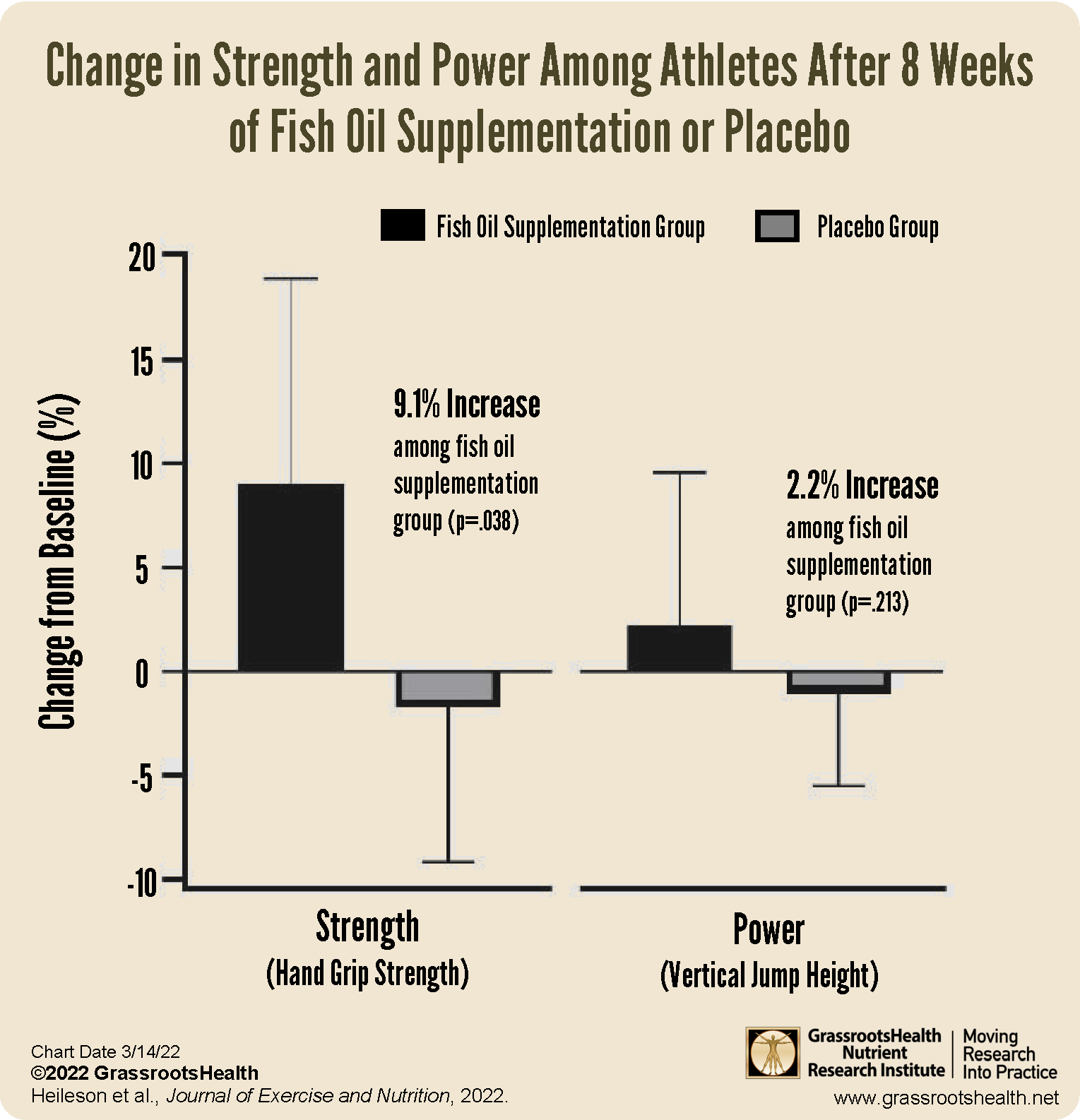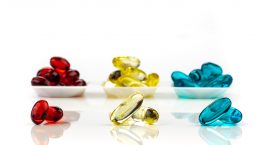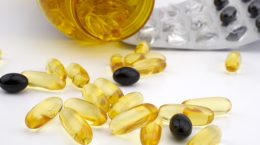Published on March 16, 2022
A randomized controlled trial demonstrates a positive relationship between the Omega-3 Index (specifically EPA levels) and increased strength among athletes supplementing with omega-3 fish oils
Key Points
- Omega-3s have been shown to help improve muscle strength, range of motion (ROM), and delayed onset muscle soreness (DOMS), as well as upper arm circumference and muscle quality
- A new randomized controlled trial found that athletes taking the fish oil supplements for 8 weeks increased their Omega-3 Index by 73% (from an average of 4.58% to an average of 7.94%), EPA levels by 332%, DHA levels by 64%, and handgrip strength significantly by 9.1%, and this increase was positively correlated with changes in EPA (greater increases in EPA levels were associated with greater increases in strength)
- Vitamin D has also been shown to improve skeletal muscle function, normal coordination and balance

Studies have shown how omega-3 supplementation and a higher Omega-3 Index can positively impact athletic performance and recovery. Muscle stiffness, soreness, and loss of range of motion (ROM) are common negative effects of a new or strenuous exercise routine, which have shown to be reduced or prevented with fish oil supplements. Specific outcomes among those supplementing with omega-3 fish oils and/or with a higher Omega-3 Index include the prevention of loss of muscle strength, decreased ROM, and delayed onset muscle soreness (DOMS), as well as increased upper arm circumference and decreased muscle echo intensity (an indicator of muscle quality).
Study Shows 8 Weeks of Omega-3 Supplementation Increased Muscle Strength and Omega-3 Index
A randomized, double-blind, placebo-controlled study (RCT) by Heileson et al. looked at the effects of long-chain omega-3 fatty acids on athletic performance by measuring changes in body composition, strength, and power among a group of athletes taking fish oil supplements. The study enrolled 27 collegiate athletes, 15 of whom took fish oil supplements consisting of 1.75 g EPA plus 1.1 g DHA (taken daily for 8 weeks), and 12 who received placebo supplements. Omega-3 status was measured using a blood spot test for the Omega-3 Index, EPA and DHA levels.
Among the athletes taking the fish oil supplements
- The Omega-3 Index increased by 73% (from an average of 4.58% to an average of 7.94%)
- EPA levels increased by 332%
- DHA levels increased by 64%
- Handgrip strength increased significantly by 9.1%, and this increase was positively correlated with changes in EPA (greater increases in EPA levels were associated with greater increases in strength)
None of the above changes were observed among those taking the placebo, and there were no significant differences between the supplementation group and the placebo group for changes in body composition. However, power (measured by vertical jump height) did improve in the fish oil group while it declined slightly in the placebo group, although this finding was not statistically significant.
Vitamin D is Important for Muscle and Bone Health Too
Vitamin D has been shown to improve skeletal muscle function, normal coordination and balance. Studies have shown that maintaining a vitamin D level of at least 40 ng/ml (100 nmol/L) resulted in a decreased risk of bone fracture and stress fracture. Fast-twitch muscle fibers have been shown to be especially sensitive to vitamin D levels, which are important for burst activities and fall avoidance. Overall, cumulative research has shown that peak musculoskeletal performance may occur with a vitamin D level of at least 50 ng/ml.
Could Your Omega-3 and Vitamin D Levels be Improved? Measure them At-Home Today!
Are your vitamin D and omega-3 levels supportive of an active lifestyle? Make sure you know your Omega-3 Index (target of at least 8%) and your vitamin D level (target of 40-60 ng/ml or 100-150 nmol/L), and are taking daily steps to keep both within range. Testing is essential, as there is a large amount of variability in the omega-3 status for different people with the same intake amount (similar to vitamin D!). For example, a GrassrootsHealth analysis showed that the range of response with 1000 mg of EPA+DHA per day was 5.7% to 10.2%. Therefore, it is recommended that individuals measure their Omega-3 Index and determine a personalized dose using the Omega-3 calculator to achieve a minimum Omega-3 Index of 8%.
 Having and maintaining healthy vitamin D levels and other nutrient levels can help improve your health now and for your future. Choose which additional nutrients to measure, such as your omega-3s and essential minerals including magnesium and zinc, by creating your custom home test kit today. Take steps to improve the status of each of these measurements to benefit your overall health. With measurement you can then determine how much is needed and steps to achieve your goals. You can also track your own intakes, symptoms and results to see what works best for YOU.
Having and maintaining healthy vitamin D levels and other nutrient levels can help improve your health now and for your future. Choose which additional nutrients to measure, such as your omega-3s and essential minerals including magnesium and zinc, by creating your custom home test kit today. Take steps to improve the status of each of these measurements to benefit your overall health. With measurement you can then determine how much is needed and steps to achieve your goals. You can also track your own intakes, symptoms and results to see what works best for YOU.
Enroll in D*action and Test Your Levels Today!






